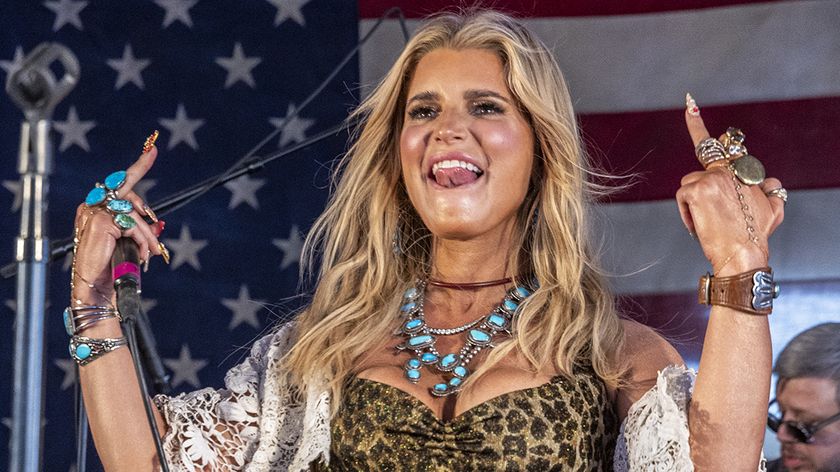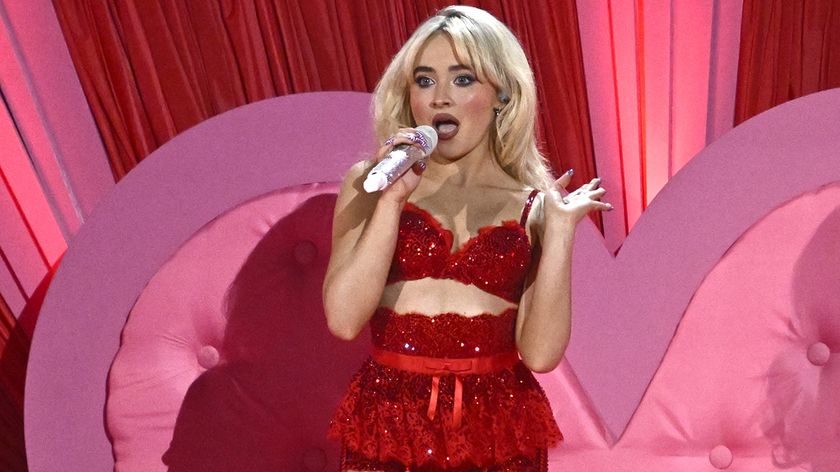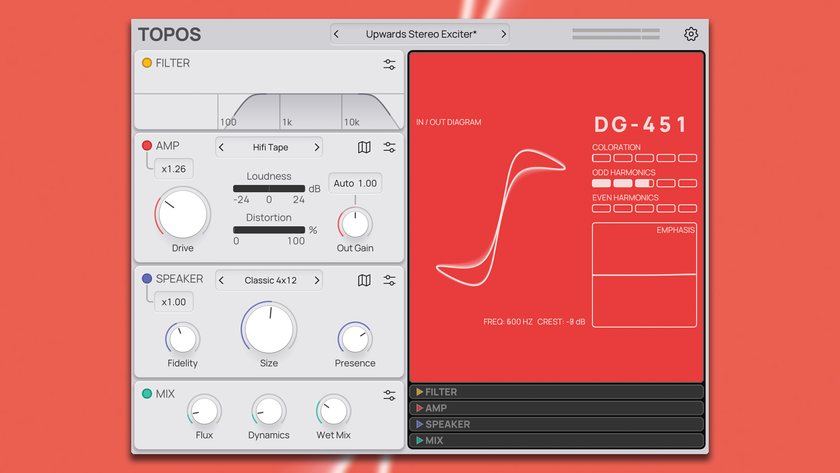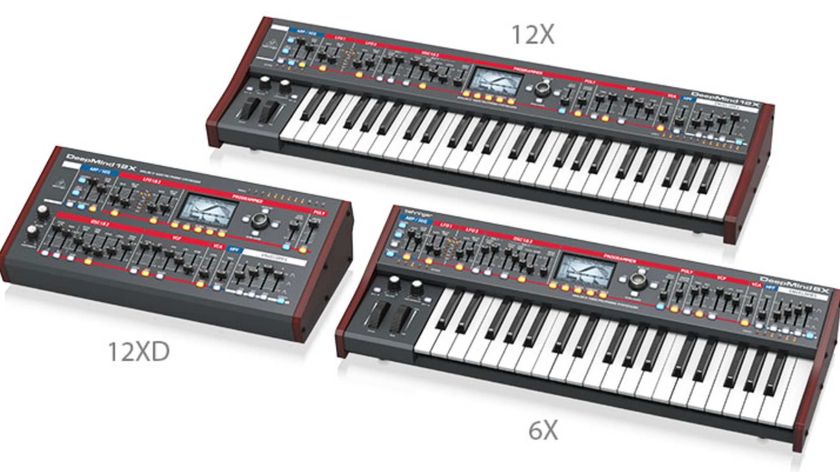Dave Grohl on Nevermind, In Utero and experimenting with Steve Albini
One from the Rhythm vaults
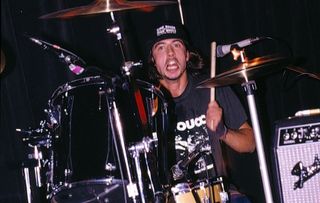
Dave Grohl on Nevermind, In Utero and experimenting with Steve Albini
For those of you that have been living on Mars for the last month, we have just marked 20 years since the release of Nirvana’s studio swansong, In Utero.
Following-up the monumentally-successful, landscape-changing Nevermind, the record had a far darker sound than its predecessor, but still hit top spot in the UK and US, selling by the truckload.
An incredible sounding album to this day, we are honouring In Utero by digging back to an interview with the man at the kit - Dave Grohl, of course - from way back in 1993. Here’s what Dave had to say about following a classic, heading up the grunge movement, and why it doesn’t always pay to strive for perfection...
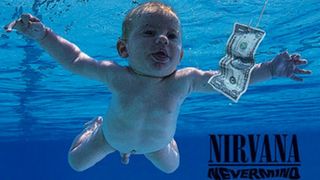
Hitting the big time with Nevermind
"The record came out and people heard about it,” says Dave Grohl on the subject of Nevermind. “Then the Smells Like Teen Spirit video came out and people saw what we were doing - we were f**king s**t up and having fun. And I think that’s pretty much what every kid in the world wants: to be able to feel like they’re f**king something up and getting away with it.”
Grohl recounts their meteoric rise with ingenuous glee: “I think Bleach [Nirvana’s pre-Grohl debut] sold 75,000 copies on Sub Pop. Mudhoney were the big sellers on Sub Pop at the time, and then we moved over to DGC. We recorded Nevermind and there was a big buzz in the industry. Everybody started wondering, 'what is this Nirvana thing?'
"We were happy to open up for Sonic Youth on tour for the next five years of our lives, and that’s what we were expecting to happen. We thought it’d sell maybe 150,000 copies, and the record company thought the same. I think at first they pressed 100,000 copies, and those went in the first week. Then we were selling 150,000 copies a week and it got to a point where we just couldn’t believe it any more. People were telling us this stuff and it was kind of funny, like winning some ridiculous contest that you never knew you’d entered and didn’t care whether you won or lost."

Success hits home
“It was never our intention to become some huge rock phenomenon, and I think that that not being the goal sort of saved our ass; we just made this record and we put it out and we went on tour. We never imagined anything like this.
"When things slowed down and we came off tour, when we actually stopped and sat down, we couldn’t believe it. We just thought, ‘God, look what f**kin’ happened.’ It was a record that people could put on and for 45 minutes could... work it out.
"Whatever they were p**sed off about, they could scream along to it; if they were sad, maybe they could be uplifted... it really did strike a chord with people. I don’t know why and I don’t know what that chord was... it’s like sitting on a surfboard and wondering what propels that board. Well, it’s the wave. But what makes the wave? It’s gravity and the Earth’s rotation... but as far as you know, you get on this board and it takes you to the shore.”
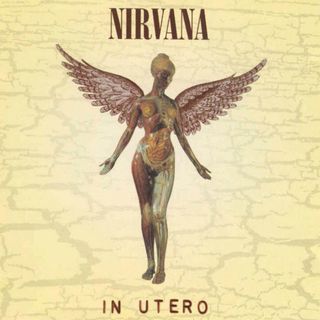
Following up a classic
“There was never any concern with making an album that was better than Nevermind,” Grohl adamantly claims.
"We just wanted to do something that was different. Sure, if we had it would’ve sold like crazy, and it would’ve put us in huge arenas and we would be some huge rock band, but we hate repeating ourselves. The thing that keeps us moving is experimentation: we like being very noisy sometimes and we like being very quiet; we like being melodic and we like being a sledgehammer. There was never any pressure on us at all. We went in and we did it surprisingly quick.
“Krist [Novoselic, bass] and I had the basic tracks done in the first two days. In less than three days we recorded 15 songs, and all of them were first takes. We weren’t into making things perfect, and we didn’t want things as clean and nice as possible. We just felt the energy of a first take was so much more propelling than a second or third take. It’s your first time in a studio playing a song, and with the first take there’s a lot of excitement and anxiety and weird feelings that come out.”
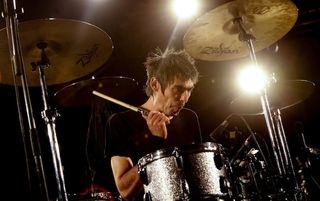
Bashing it out with Albini
Dave reveals that he prefers the Steve Albini-produced In Utero to Nevermind, and revels in the fact it was created with less regard for finesse than its predecessor.
He explains: “Working with Butch Vig on Nevermind there was a lot more attention paid to perfection; with this album there was none. I think it has a lot more character - there are a lot more flaws. It was pretty much go in and sing into a microphone, or go in and play the drums.
"It’s what I said about experimentation - when we did Nevermind we had a month in the studio, but the basic tracks were done within the first three or four days. You know, we had three more weeks to f**k with it, and a lot of the time that can ruin a record. But that was an experience for all of us, to spend a lot of time on something like that. With In Utero it was: just go in and bash it out. That was our experimentation: let’s see how fast we can make a record.”


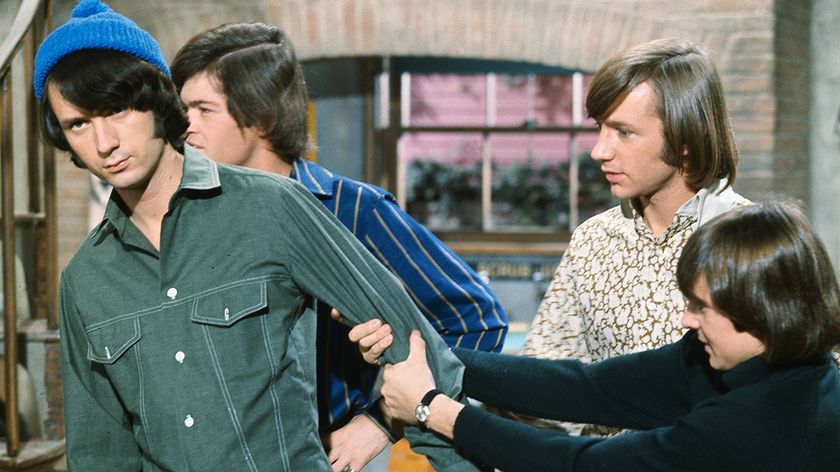
"They said, ‘Thank you, but no thank you - it’s not a Monkees song.’ He said, ‘Wait a minute, I am one of the Monkees! What are you talking about?’": Micky Dolenz explains Mike Nesmith's "frustration" at being in The Monkees
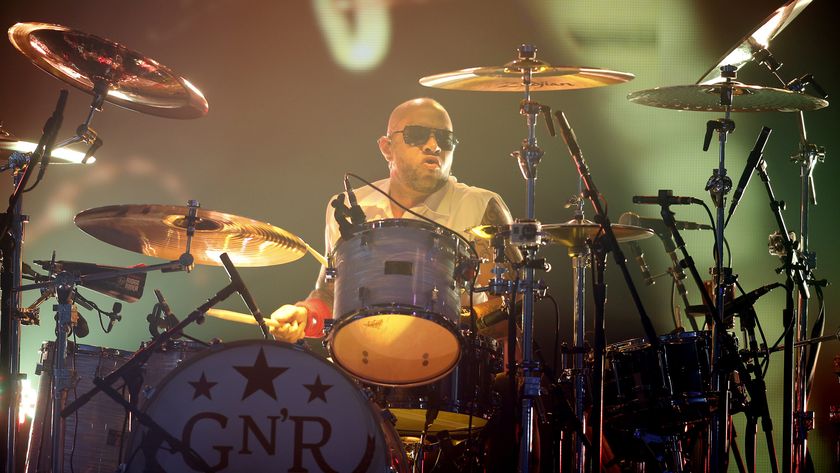
“There’s nights where I think, ‘If we don’t get to Paradise City soon I’m going to pass out!’”: How drummer Frank Ferrer powered Guns N’ Roses for 19 years

"They said, ‘Thank you, but no thank you - it’s not a Monkees song.’ He said, ‘Wait a minute, I am one of the Monkees! What are you talking about?’": Micky Dolenz explains Mike Nesmith's "frustration" at being in The Monkees

“There’s nights where I think, ‘If we don’t get to Paradise City soon I’m going to pass out!’”: How drummer Frank Ferrer powered Guns N’ Roses for 19 years

